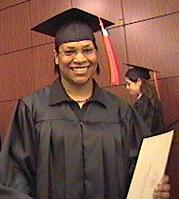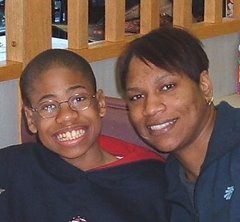The Age of Autism New York nixes mercury
By Dan Olmsted
Have America's medical authorities -- including pediatricians -- lost their credibility on an issue involving the well-being of the nation's children?
It's hard to avoid that question after New York Gov. George Pataki Tuesday signed a bill banning a mercury preservative from medicines given to children under 3 years old and pregnant women. The law takes effect in 2009 and exempts mercury-containing flu vaccines in case of an epidemic.
The measure was strenuously opposed by the American Academy of Pediatrics, and concern about the preservative as a cause of autism has been dismissed by government regulators. As late as last week, parent advocates feared a veto due to opposition from the doctors and the state department of health, despite overwhelming bipartisan support in the legislature.
A last-minute effort by a number of groups, including A-CHAMP -- a parents' organization that advocates elimination of mercury exposure, particularly in vaccines -- prevailed in the end.
"I think this bill sends an important national message that elected officials in the states are looking at federal policy and coming to the realization they can't trust Washington to do what needs to be done," said John Gilmore, president of the New York Chapter of the National Autism Association and treasurer of A-CHAMP.
"Something is fundamentally broken at the Food and Drug Administration and the Centers for Disease Control," said Gilmore, whose son Luke, 5, has autism. He noted that Missouri, Delaware, Illinois, California and Iowa have passed similar bans, and legislation is pending in 14 states from Florida to Washington.
The mercury preservative is called thimerosal, a component of many childhood vaccines until it was phased out beginning in 1999 at the urging of, among others, the pediatrics group.
But as states have moved to ban the substance in childhood vaccines and in medicine for expectant mothers, the pediatricians have objected, citing evidence that it has not harmed anyone.
"CONTACT GOVERNOR IMMEDIATELY AND URGE HIM TO VETO THE THIMEROSAL BILL," said a statement from the District II New York Chapter of the American Academy of Pediatrics before Pataki signed the bill.
"This legislation represents very bad public health policy that is based on junk science and mass hysteria, not on the evidence of science. We at the AAP District II believe this bill is bad for our patients and bad for all New Yorkers, so please act now."
At issue is whether thimerosal -- which is 49.6-percent ethyl mercury by weight -- caused an autism epidemic. While most mainstream experts dismiss the idea, some parents, doctors and scientists say it's too early to rule out thimerosal. They allege flaws and conflicts of interest in some of the studies and say too many parents have watched their children become autistic after vaccinations.
The pediatricians say a ban just reinforces the discredited idea that thimerosal is toxic and might scare parents away from vaccinating their kids.
"This bill, designed to protect individuals from alleged adverse effects of thimerosal which contains ethyl mercury, is completely unnecessary," said the AAP statement. "To legislate based on fear and misinformation is an anathema to those of us who work tirelessly for the health and welfare of our communities.
"To enact this legislation implies that the vaccines that have virtually eradicated many diseases, constituting one of the greatest public health accomplishments of the past century, are dangerous. This bill denigrates our informed scientific and medical communities while supporting all of the anti-vaccine factions in our society. This legislation potentially jeopardizes our most vulnerable communities."
Thimerosal's opponents argue such logic shows why mercury stayed in vaccines so long in the first place: Doctors can't face the prospect they caused harm to children and are still in denial.
"Why would pediatricians now want to continue injecting children with a known nerve poison?" asked Dr. Alan Clark, a founder of No Mercury, which has pushed for the thimerosal ban nationwide.
He said such legislation "directly contradicts their previous position in 1999 that thimerosal should be removed from childhood vaccines."
Gilmore, of the New York autism association, says the law will affect as many as 300 vaccines now under development.
The Buffalo News said in an editorial last week that Pataki should sign the bill. "While it has not been proven, some experts link mercury-laced thimerosal, used to prevent bacterial contamination, to autism and other neurological disorders," the newspaper said. "If there is even a slight chance thimerosal could be linked to these neurological disorders, why take chances?"
After Pataki signed the bill, supporters slammed the pediatricians' position.
"We continue to question why an organization consisting of pediatricians feels no need to protect New York's children," said a spokesman for the law's proponents. "They have opposed legislation similar to New York's in almost every state, but they should get the message, after losing now in six states, that the will and the power of parents will prevail to protect our children from neurotoxins.
"We are not anti-vaccine. We are opposed to injecting mercury, a potent neurotoxin, into babies."
One group, generationrescue.org, has begun serving as a clearinghouse for parents interested in treatments based on the premise that autism is in fact mercury poisoning by another name.
E-Mail: dolmsted@upi.com
http://www.sciencedaily.com/upi/index.php?feed=Science&article=UPI-1-20050831-17480200-bc-ageofautism.xml
Copyright 2005 by United Press International. All Rights Reserved.
For more information and resources on autism, please visit:
http://www.autismconcepts.com/.
Forget what you haven't heard… Family site shares news, resources, announcements and free or low-cost ways to help us manage day-to-day living with autism.
Crystal Brown

About Me

- Crystal
- AutismConcepts.com and Child-Autism-Parent-Cafe.com share a large collection of useful autism information, resources, and how-to articles written by authors who are touched by autism, offering practical solutions to families. Particularly minority and underserved families and caregivers who may not know what to do or where to go for help.
MJ And Me

Blog Archive
-
▼
2005
(194)
-
▼
September
(20)
- Autism Epidemic Continues...
- Free Online International Autism Conference
- The Autism Community Calls for Power of Parents Ra...
- With Open Arms: New Financial Guide for Parents of...
- Walk Around The World for autism
- NYS - Developmental Disabilities Planning Council
- NYS - Autism Move-A-Thon of Orange County
- NYS - The Center for Diagnostic and Consultation S...
- NYS - Workshops on Autism in Kingston, NY
- Children's Vinyl Lunch Boxes Can Contain Dangerous...
- Hurricane Katrina - Important Info for People with...
- Hurricane Katrina - 10 Ways to Disability Relief U...
- Evacuee's autistic son, 21, found safe, sound
- Boy Scout Camp in MS to Provide Temporary Shelter ...
- Shelter meets basic needs but far from all
- Disaster Preparedness Resources for People with Di...
- Hurricane Katrina - 10 Ways to Support Disability ...
- National Hotline To Locate Missing Hurricane Victi...
- FDA Knew Danger of Thimerosal - Vaccines for 60 Years
- The Age of Autism New York nixes mercuryBy Dan Olm...
-
▼
September
(20)